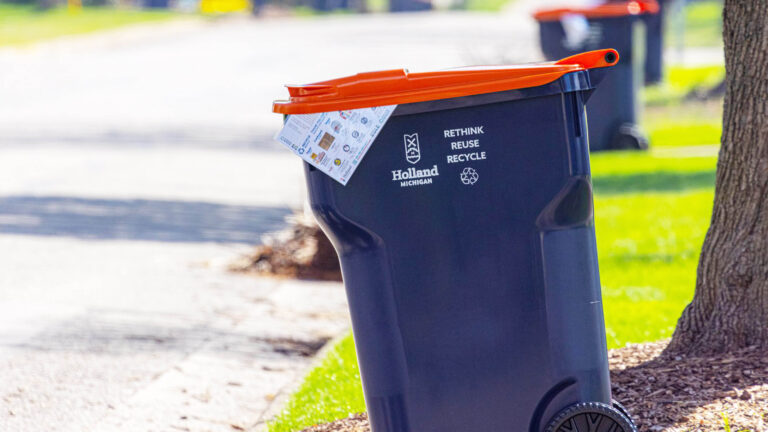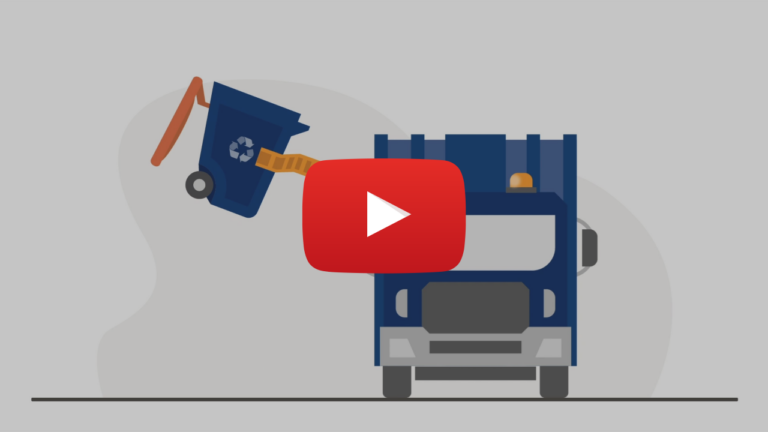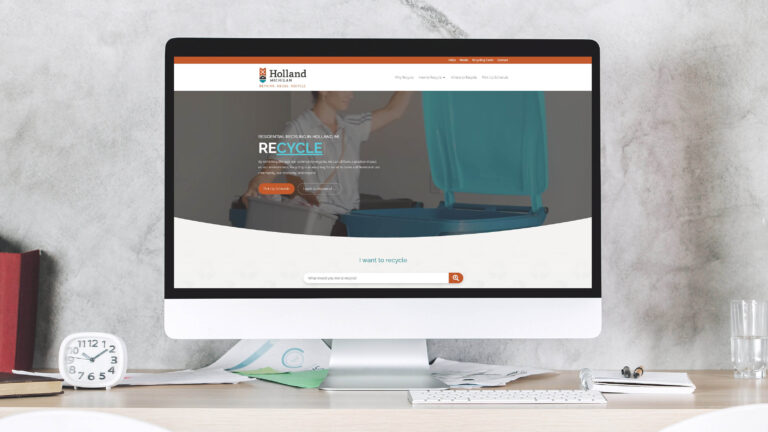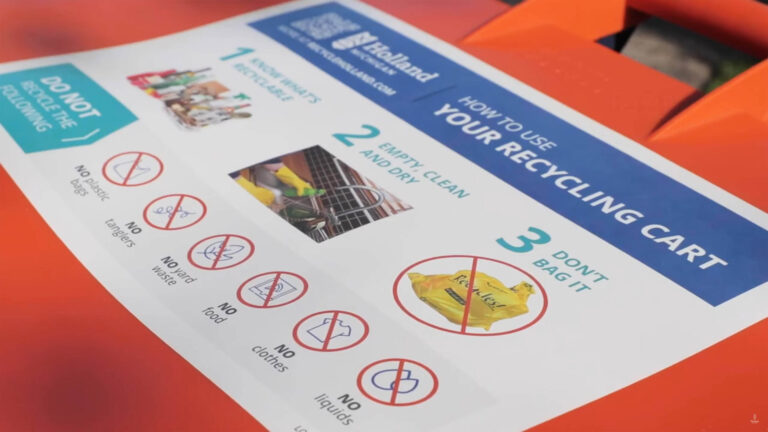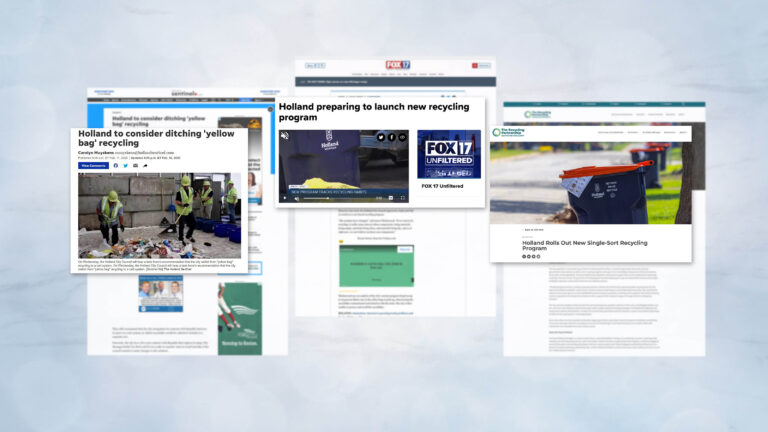The Challenge
An independent Solid Waste Characterization Analysis confirmed that the City of Holland’s curbside recycling program was no longer in alignment with industry best practices. The study found their method, which involved a bright yellow bag of recyclables placed in the same cart as trash (and then sorted at a combined facility later), had a failure rate of nearly 75%! That meant, despite the community’s above-average recycling efforts, most recyclables weren’t clean enough to actually be recycled into other products. After consulting experts, they decided to roll out dedicated EcoCarts, which are separate waste carts dedicated only for recyclables, along with a single-stream recycling program.
However, the City also faced a challenge in resident perception and recycling habits, which had become engrained over many years with the previous program. Many people had formed assumptions that recycling was overly expensive and offered a low ROI to the community and local business.
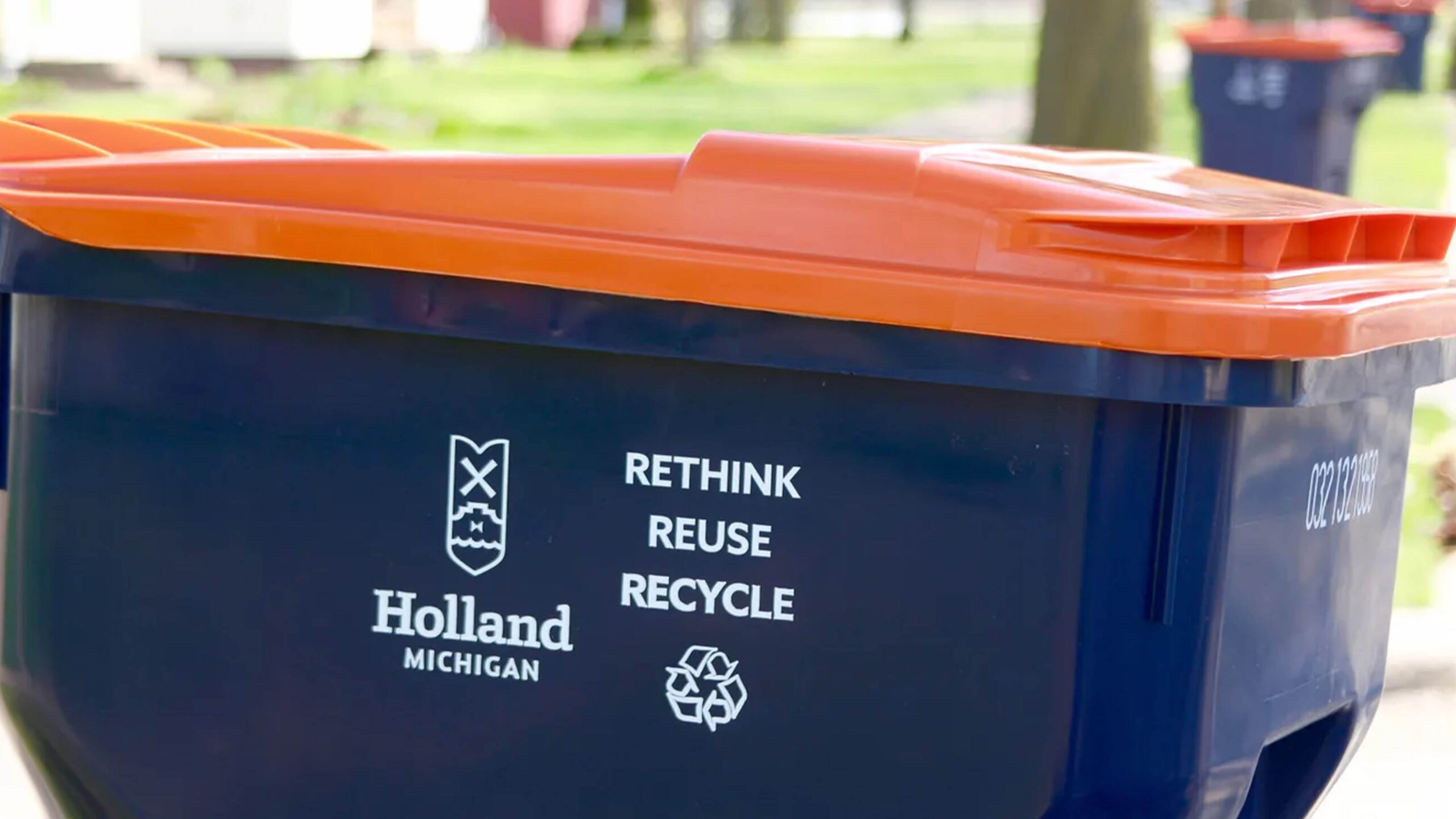
THE SOLUTION
The goal of our education campaign was to inform the community of the transition from yellow bags to carts. We also needed to renew the community’s understanding on how to recycle to maximize the positive economic impact of community recycling programs.
Our efforts had two main parts: a public relations support campaign and a community education campaign. The PR portion of the campaign involved collaborating with City leadership to establish a body of key messages and talking points. These points became essential for handling conversations with community members and the press. We also worked with them to develop press releases and collateral around important rollout dates to facilitate clarity around the transition to carts.
To re-engage the community in the story and value of recycling, we developed a motion-graphic explainer video. Our team toured local Padnos recycling sorting facilities throughout West Michigan to learn the complete process of local recycling and how it contributes to a circular economy, which we condensed to a script for the video and other materials including collateral and recycling cart lid labels. The labels visually show what items residents can or can’t recycle, as well as other guidelines for how to properly recycle.
An amalgamation of these helpful resources are hosted on the microsite we developed for the campaign, RecycleHolland.com.
Deliverables
- Educational video
- Educational cart lid label
- Educational mailers
- Educational info cards
- Microsite
- PR support activities
The Results
By the time the City of Holland rolled out the recycling carts to the community, everyone was informed and well-educated on how to use them. In the first year after the campaign launched, recycling program participation increased from 53% of households to 70%, among leading cities in the US.
Additionally, because of the reduction in contamination, Holland’s waste services provider reported an increase in usable recycled materials, from about 5 lbs of recyclables received monthly per household to 39 lbs per household per month. This increase puts Holland one step closer to their community goal of establishing a circular economy.
